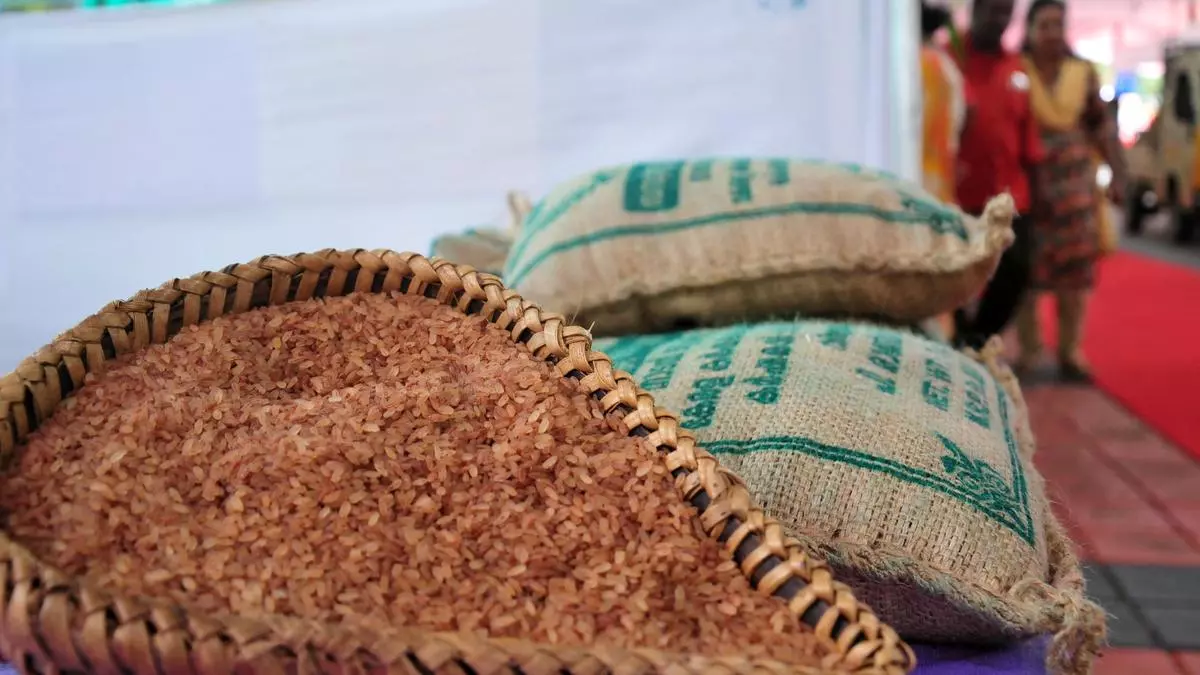Customs officials detain two ships with ‘organic’ rice containers
Two ships with organic rice export consignments have been detained at India’s Kandla port by Custom officials even as the Agricultural and Processed Food Products Development Authority (Apeda) has asked Customs officials to hold up all organic rice containers for scrutiny, trade sources in the know said.
This follows businessline’s report that non-organic white (raw) and parboiled (boiled) rice were being exported in the guise of organic rice since October 2023. During the first four months of the current fiscal, shipments of organic rice (1,46,585 tonnes) exceeded the total shipments during the previous fiscal (1,07,727 tonnes).
These exports are in contravention of the ban on shipments of these rice. Some consignments have been shipped out as organic parboiled (boiled) rice. The Centre levies a 20 per cent export duty on shipments of parboiled rice.
Shipments tad lower
Apeda, the nodal agency for exports of organic produce, has asked a Sikkim-based certifying body to stop certification of sensitive products such as organic cotton and soyabean, said the sources, speaking on the condition of anonymity. The certifying body has over 1,000 clients.
Meanwhile, piqued over the stoppage of shipments, one of the exporters had moved the Delhi High Court against Apeda. Data show that exports of organic rice during August 12-21 were 4,000 tonnes compared with 7,000 tonnes during the August 1-11 period. “Looks like the irregularities are continuing as most of these shipments are headed to Kenya,” said another trading source.
Sources said Apeda’s action against the irregularities is because they violate the National Programme for Organic Production, while the Commerce Ministry could be involved as the Foreign Trade Regulation Act has also been violated. However, they said they were awaiting “clarity” on how the authority will tackle the situation.
COFEPOSA violation?
“Since there has been duty evasion, Customs officials could invoke COFEPOSA (Conservation of Foreign Exchange and Prevention of Smuggling Activities) Act,” said the second trading source. Duty evasion of over ₹160 crore has reportedly taken place between October 2023 and July 2024.
These shipments were exported at $491/tonne to Vietnam and $475 to Kenya — at levels lower than what competing nations such as Pakistan and Myanmar quoted for non-organic white rice.
As per data, last fiscal, Vietnam bought 34,152 tonnes at an average $466 a tonne when even non-organic white rice prices ruled over $500 last fiscal due to a global shortage. Kenya did not import a single grain of organic rice last fiscal.
Data reveal that 22,126 tonnes and 16,547 tonnes of organic rice shipments had set sail for Vietnam and Kenya, respectively, but hardly 2,000 tonnes reached the destinations.
A South India-based exporter said he was approached to ship out non-organic white rice by some persons, who assured him that the shipments would not face any problems. “They said they were shipping over 150 containers a week,” he said.
Interesting data
Sources said more than two certifying bodies may have been involved and now efforts are on to shift to other certifying bodies, who have to issue transactional certificates for the consignments to be allowed for exports.
The second trading source wondered why APEDA has not blocked the Tracenet facility for certification bodies. “In 2022, when there were irregularities in organic cotton certification, Apeda blocked the access. The authority will have to do that now also,” the source said.
As per data, last fiscal, Vietnam bought 34,152 tonnes at an average $466 a tonne when even non-organic white rice prices ruled over $500 last fiscal due to a global shortage. “These are some interesting data that the Centre needs to probe,” the source said.
South India-based exporters said the exports were made by “fly-by-night” operators. Preliminary information suggests that documents for the “fake” organic rice shipments “originated” from Bihar and Odisha. Some of the shipments were shipped out as rice grown in Sikkim, a fully organic State.
